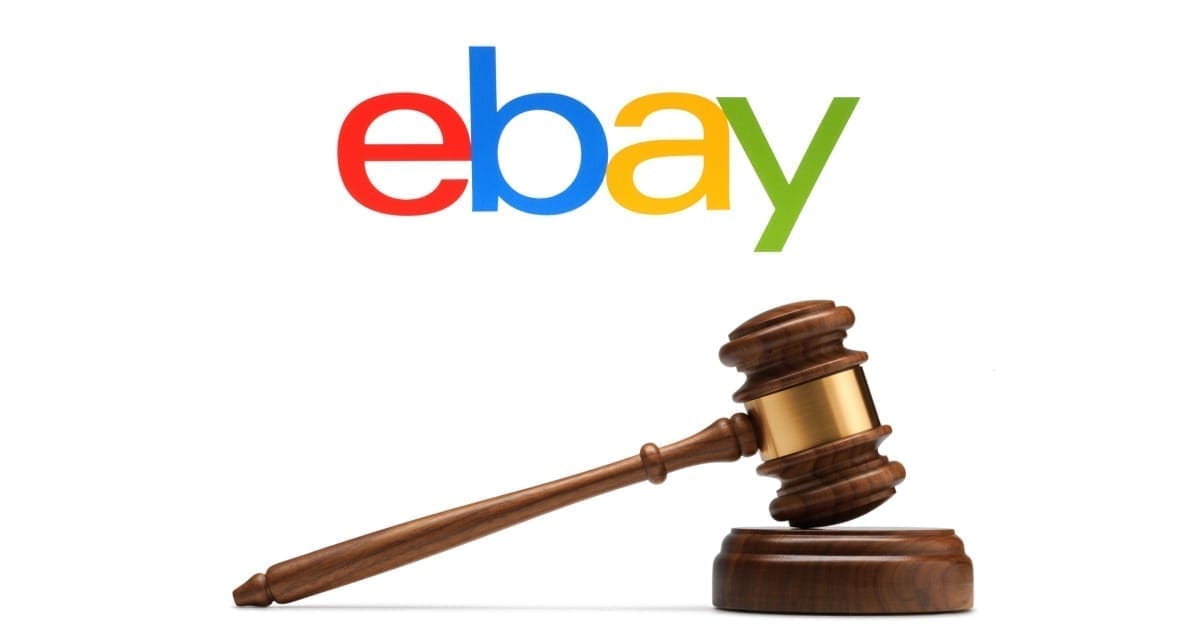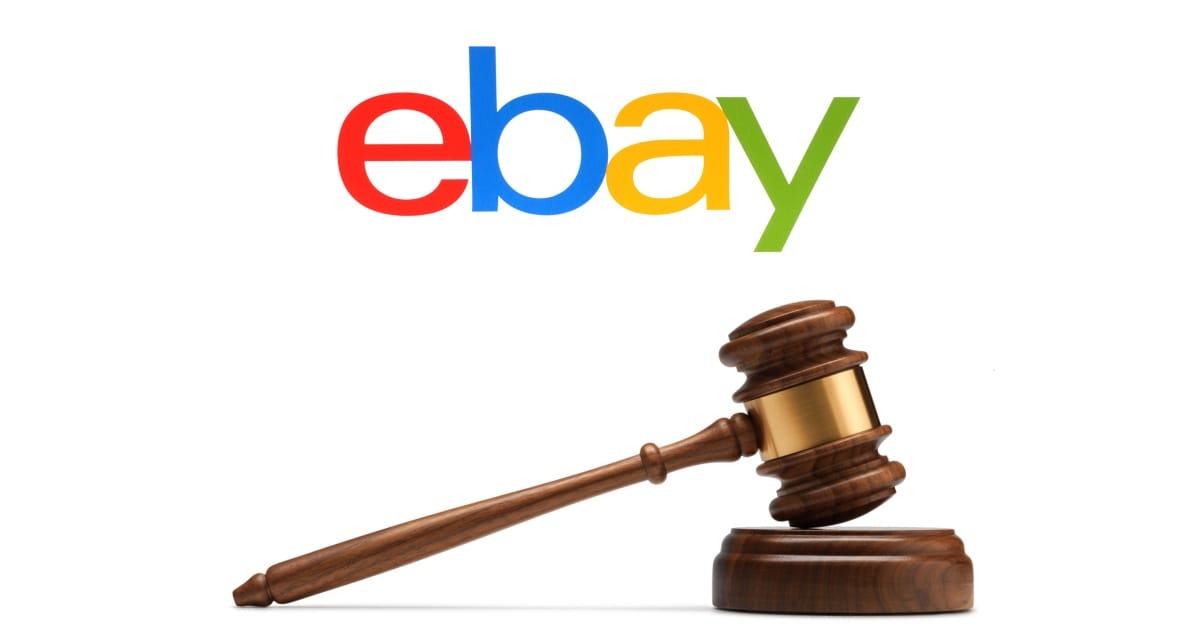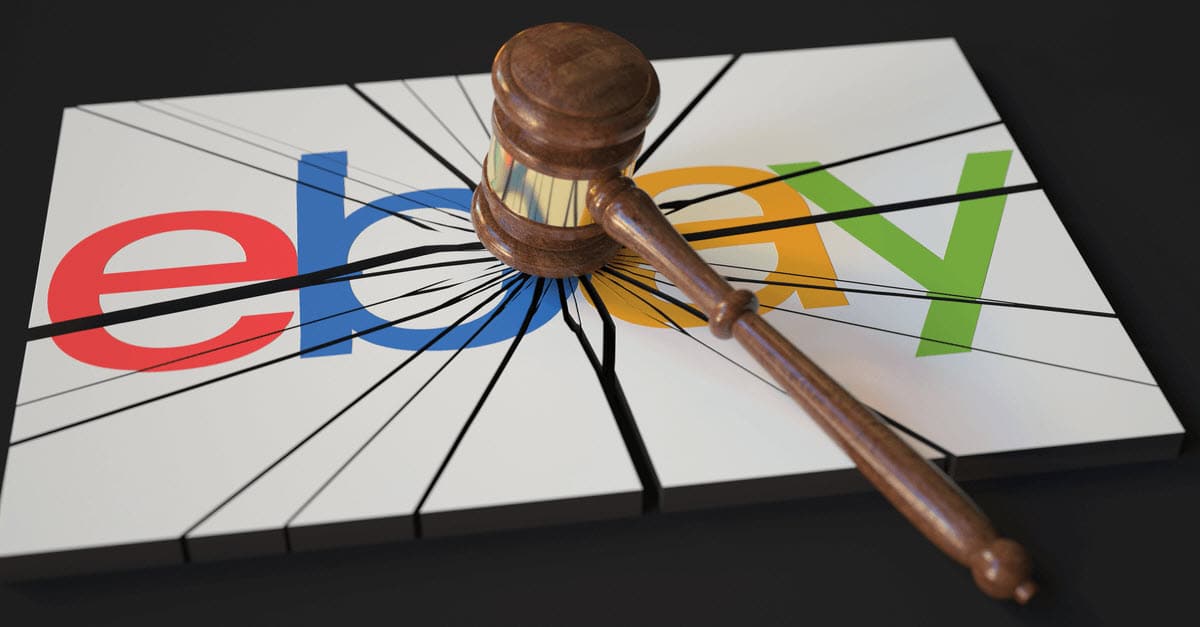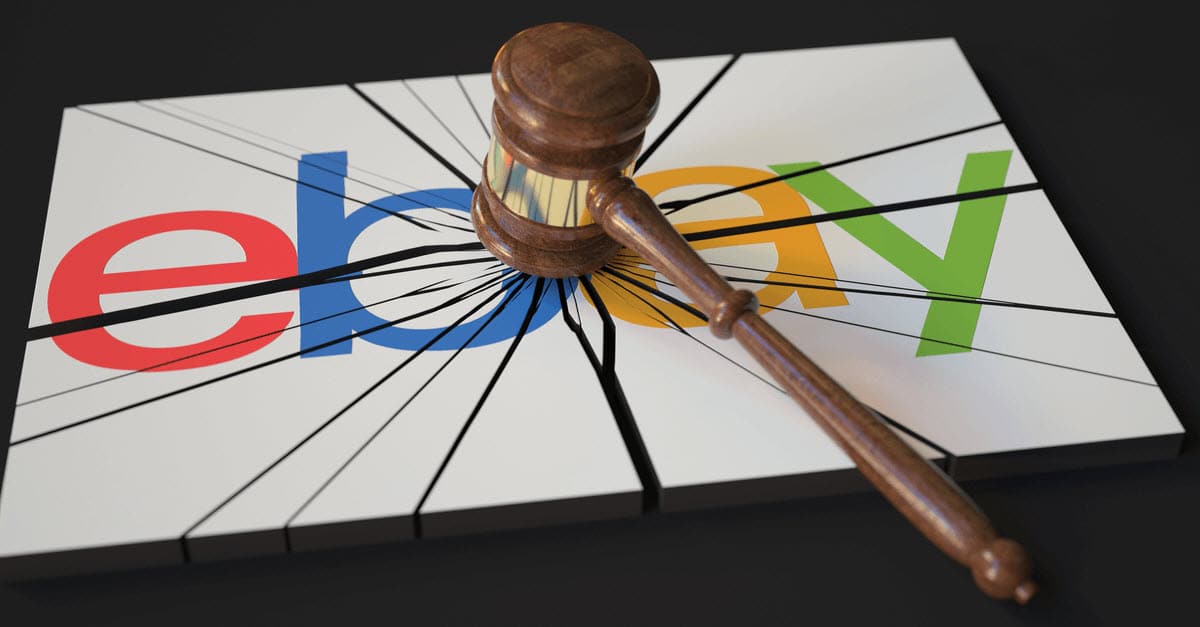eBay Cites Section 230 Protections In EPA Suit Defense
UPDATE 4-24-25
After previously requesting more time to file their opening brief, the US Department of Justice has decided to drop their appeal of Section 230 dismissal in EPA case which sought to hold eBay liable for illegal items sold on their site.
UPDATE 9-30-24
eBay's Section 230 defense has prevailed, winning dismissal of EPA suit seeking to hold them liable for chemicals and emissions control defeat devices sold on their site, but the DOJ plans to appeal.
eBay
eBay has filed their first response in EPA environmental suit, citing Section 230 protections to argue the case should be dismissed.
The lawsuit was filed in September, alleging eBay "unlawfully sells, offers for sale, causes the sale of, and/or distributes" harmful pesticides, restricted chemicals and illegal devices that defeat pollution controls on motor vehicles.
The 58 page complaint did not pull any punches, saying eBay has the power and authority to stop these dangerous sales but has simply chosen not to do so.
Simply put, eBay unlawfully sells, offers for sale, causes the sale of, distributes, and/or distributes in commerce products in violation of the CAA, TSCA, and FIFRA.
Some of these products cause motor vehicles to emit, in the aggregate, massive amounts of air pollution. Others pose an imminent, and in some cases potentially lethal, danger to human beings.
eBay has the power, the authority, and the resources to stop the sale of these illegal, harmful products on its website. It has chosen not to; instead, it has chosen to engage in these illegal transactions.
It also highlights the complexity of selling through the eBay marketplace, particularly in recent years as Managed Payments, marketplace facilitator tax laws, and increased eBay-involvement in all aspects of business on the platform have blurred lines about whether the company is "just a venue" as they have claimed in the past.
eBay is involved in and controls every stage of a transaction on eBay.com. Some of that involvement is simple and direct. Buyers pay eBay for products sold on eBay.com, and eBay remits a portion of the sales price to the merchant.
eBay calculates, collects, and remits sales taxes and other state-imposed fees.
eBay prohibits participants in its marketplace from making offers to buy and sell outside of eBay.com and has other restrictions on how buyers and
sellers can communicate.As part of its Money Back Guarantee policy, eBay will refund the purchase price and shipping to the buyer if the merchant fails to deliver the product.
Some of eBay's involvement in transactions on its website is complex: eBay utilizes a powerful set of algorithms that analyze data on search and purchase histories to ensure that buyers quickly find items that eBay believes they may ultimately purchase.
These algorithms may even point buyers toward items that they had no conscious intention of searching for, but that eBay's algorithms determined they might purchase. Collectively, eBay's involvement in the transaction guides,encourages, and controls every step of the interaction between a buyer and a merchant.
In sum, eBay.com is far more than an internet venue that connects purchasers and merchants - it also actively promotes, controls, consummates, and guarantees the transaction.
eBay brought in some heavy hitters for their defense with Sullivan & Cromwell having a notable history in environmental practice, including representing Volkswagen and Fiat Chrysler through their respective diesel emissions scandals as well as BP during the Deepwater Horizon oil spill.
In a request for leave to file Motion to Dismiss submitted to the court today, eBay argues they do not actually sell any of the alleged violating products and that Section 230 of the Communications Decency Act protects platforms like them from liability for actions taken by their users.
For almost three decades, e-commerce marketplaces like eBay have provided an
online venue where sellers can post items, buyers can view them, and then interested buyers and sellers can agree to transactions.For just as long, sellers have tried to use these platforms to sell illicit products. eBay prohibits such sales, employs both automated and manual tools to identify and remove illicit listings, and suspends malicious sellers. Notwithstanding those efforts, however, bad actors sometimes evade eBay’s detection.
On September 27, the United States filed this action on behalf of the Environmental Protection Agency (EPA), complaining that in recent years there were sales on eBay of aftermarket defeat devices in violation of the Clean Air Act (CAA); pesticides in violation of the Federal Insecticide, Fungicide, and Rodenticide Act (FIFRA); and products containing methylene chloride in violation of the Toxic Substances Control Act (TSCA).
The central problem for EPA is that, in all three of those statutes, Congress imposed liability on sellers—the people who actually own or possess the items, and who sell, deliver, or introduce them into commerce.
None of the statutes applies to online marketplaces that provide a platform for sales by third parties, and no court has ever imposed liability on that theory under these or similar laws. To eBay’s knowledge, no federal or state regulator has even tried. This action is literally unprecedented. Even accepting the Government’s extraordinary position—that eBay is liable any time it fails to stop an illegal sale, no matter its efforts—this suit is barred by Section 230 of the Communications Decency Act, 47 U.S.C. § 230(c)(1).
That statute, which protects online businesses from the significant liability that would result from being held responsible for the harmful acts of third parties on their sites, squarely applies here.
The request goes on to explain that in regard to allegations made under the Clean Air Act, Federal Insecticide, Fungicide, and Rodenticide Act, and the Toxic Substances Control Act that eBay is not a "retailer" nor do they "sell" or "offer to sell" any of these items directly.
They also further expanded on why they believe Section 230 "applies in spades" to this case.
The protections afforded by Section 230 recognize that “[i]t would be impossible for service providers to screen each of their millions of postings for possible problems.” Force v. Facebook, Inc., 934 F.3d 53, 63 (2d Cir. 2019) (quoting Zeran v. America Online, Inc., 129 F.3d 327, 331 (4th Cir. 1997)).
Accordingly, the statute shields a defendant when (1) it provides an interactive computer service; (2) the plaintiff’s claims treat the defendant as the publisher of information; and (3) that information is provided by a third party.
That defense applies here in spades. EPA’s claims seek to hold eBay liable for “products listed by third-party merchants.” EPA’s claims treat eBay as the publisher of that listing information because, “[a]t bottom, [EPA’s] contention is that eBay should be held responsible for failing to monitor the products auctioned over its service.” Stoner v. eBay, Inc., 2000 WL 1705637, at *4 (Cal. Super. Ct. Nov. 1, 2000).
As the Second Circuit has explained, “deciding whether to publish, withdraw, postpone or alter content” is precisely the sort of “editorial function[]” covered by Section 230 immunity. FTC v. LeadClick Media, LLC, 838 F.3d 158, 174 (2d Cir. 2016).
Investors are keeping a close eye on this case with multiple shareholder rights firms already investigating potential breaches of fiduciary duties by eBay officers and directors.
And while the case plays out in court, eBay also has an eye on the court of public opinion with ongoing ESG sustainability smokescreen media blitz featuring Chief Technology Officer Mazen Rawashdeh showcasing use of renewable energy in eBay's data centers, a BBC-produced eBay-funded documentary all about pre-loved sustainable fashion,"promotional research" touting eBay's circular economy efforts and more.












 Concerned
Concerned












